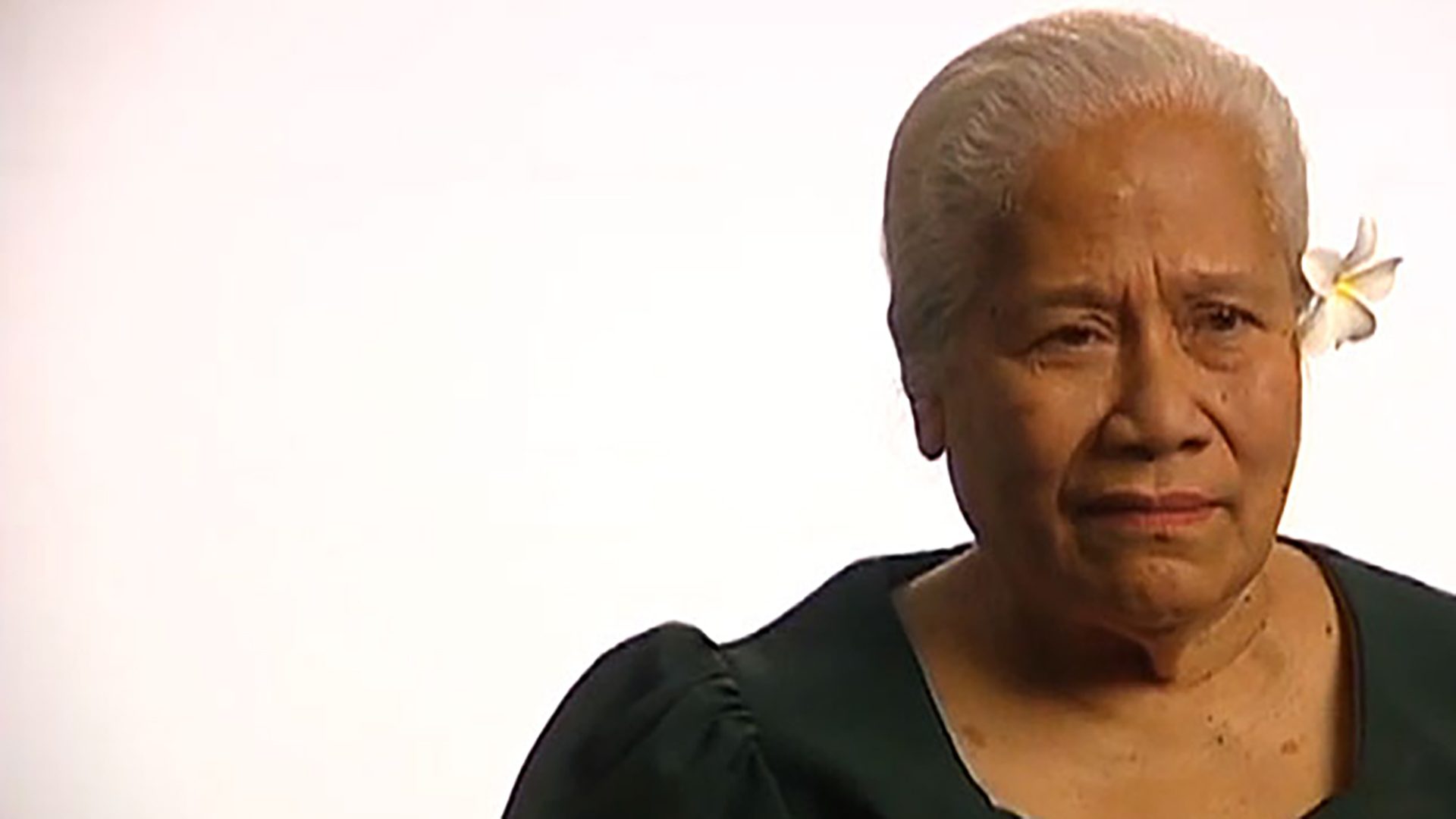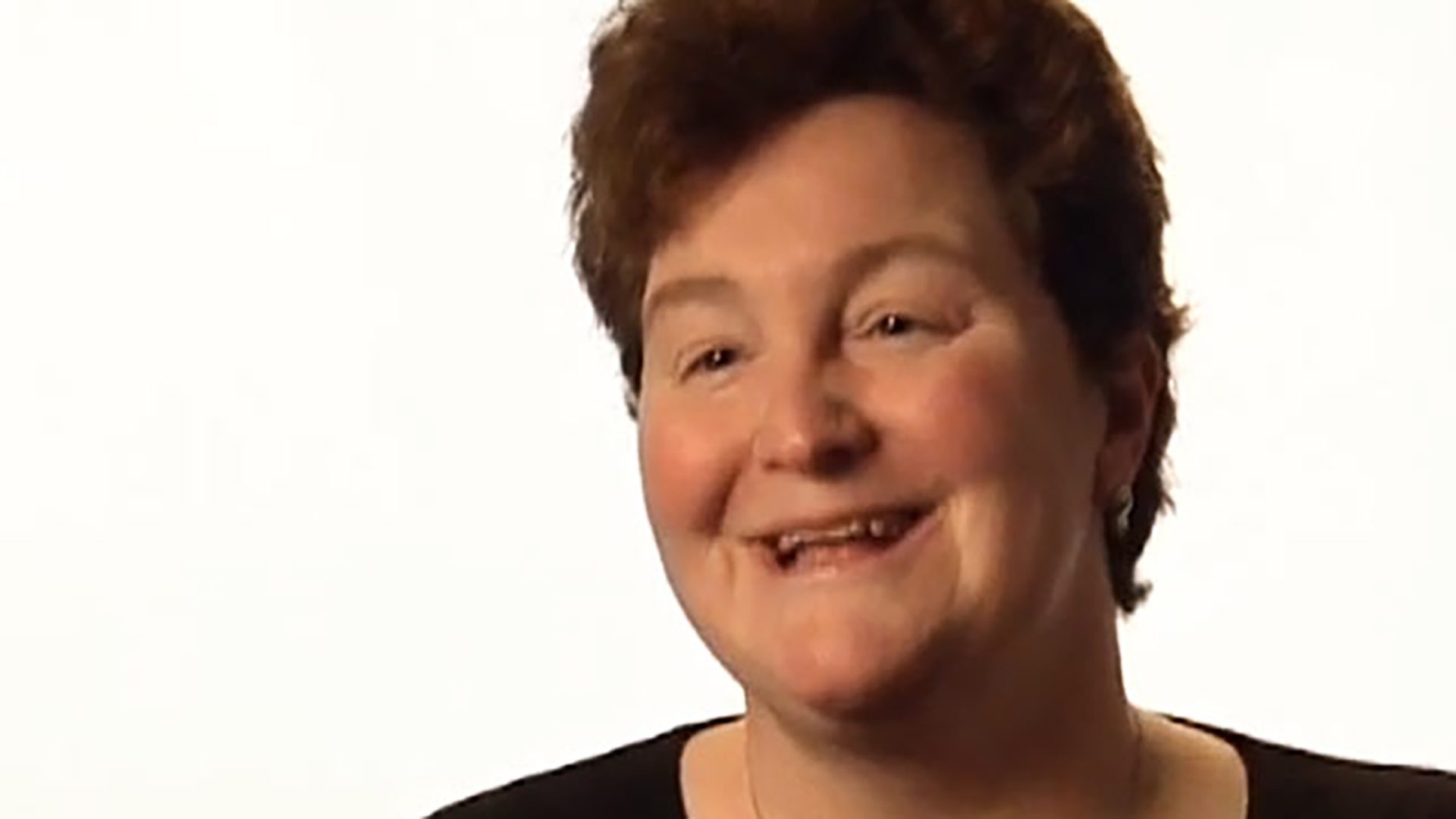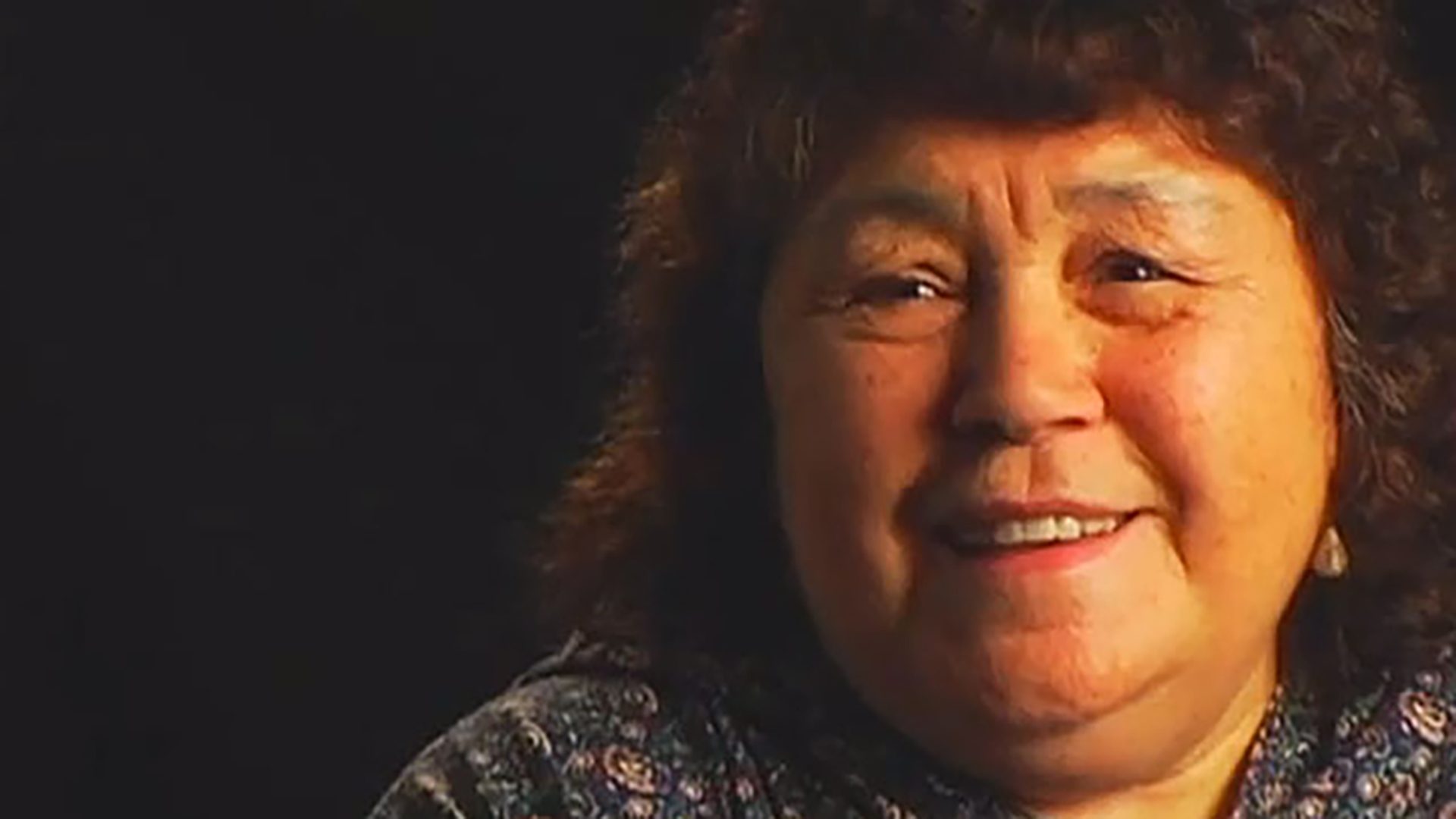Survivor Interview – Vailili E.
Vailili is a breast cancer survivor. She talks about her involvement in the Samoan community, dealing with body image post-mastectomy, and family relationships.

I have my last mammogram on 1999. Then my doctor called me up. That was the first time he noticed something unusual on my right breast. I went for second opinion, and I have an ultrasound and biopsy. What he find out on my breast was not a lump, was what he called calcifications. He told me if I want to leave it for longer, they might become a lump and cause the cancer. I told him I want to just go ahead and have my surgery done. He went and talked to the surgeon, so I went to talk with them, and I decided to have it done.
I have a best friend. She died from breast cancer. I thought, I’d rather have it done right away instead of me waiting for a little bit longer. The doctor wants to just to take off just only the spot. But I told him, “Just go ahead and cut it off.” The doctor asked me if I need reconstruction, and I said, “What for? I’m 70 years old. I might die in maybe two years, three years.” The doc says, “Okay. It’s up to you.” I said, “That’s my decision. I’m not going to have nothing to do. Just only live with one breast.”
Taking away a breast was not a big thing for me, because I have faith in God. There’s a reason why I had this disease, so I can help some of my Samoan ladies in my community. The Samoan people, especially the ladies, they don’t even want to go see a doctor for any reasons. Even if they were really sick, they’ll just stay home. Either they don’t want to go see the doctor, they don’t have any insurance or nobody will take them to the doctor. I think that’s the time for me to talk to them, help them and encourage them to go see a doctor.
Some of the time, instead of talk straight to the woman, [who] had something wrong with them, it’s easy to go through their daughters or their daughter-in-law so they can explain to them. I told her, “There’s nothing wrong to take off your clothes. The doctor’s not going to do anything wrong to you. All he have to do is just exam you, listen to your chest, if he has to, or just feel your breast. Is there any lump in there?”
It’s easier to [talk to younger generations] because they understand Americans. They understand what’s going on about health, and they understand what’s going on with the doctor. They don’t have that feeling like we have. The old Samoan people don’t want to undress or do anything. Nowadays, they understand more better than the old Samoan generations. They more Americanized.
What I’m trying to do in every church we go to, every Samoan association, we are trying to encourage them to have a screen, to do a mammogram, if they find out something wrong, and to go see the doctor and see what the doctor said. If they need any kind of treatment, just go for it. There are so many new medications nowadays. They might help them.
I encourage them to have a screen every month. Even [when] we schedule a mobile to come and to do the free screening for the Samoan ladies, two or three just show up. They sign up for about 20 or 22 ladies, and only two and three people show up. No matter how hard I talk to them. The other ladies said, “Oh, she say those things because she had [cancer].” I’m trying to help them. I said, “I have cancer and I survive with it. If you have [cancer], you can survive it, too, if you just go and see a doctor and [let them] treat you about what’s going on with you.” Samoan people, especially the Samoan women, just don’t want to see their own body.
Recently, about two months ago, there was a 29-year-old lady. I’d been visiting her twice. She closed the door for me. She deny. She die. Even her husband talked to her. He heard about me have a breast cancer and my breast removed. So he called me and he said for me to come and try to talk to her.
The first time I went, one of her daughter answer the door, so I talk to her. I ask her where’s her mom. Her mom talked to her daughter, “Who is she?” Then her daughter said it was me. Then she says, “Tell her she’s not home.” Another two days I went back to see if I can talk to her. She was by herself at home, I call her by her name, and she says, “Vi, I just don’t want to talk to you. Just go home. If I die, I die. If I live, I live.” That’s the denial from these people. There are quite a few Samoan ladies, they die because of that.
When they show us a chart, the percentage of the Samoan ladies [with cancer] was really higher than any Pacific Islanders women. They said the history from the family is maybe why. My family, we don’t have any history of any cancer. I’m the first one had breast cancer. It must be from my own body or whatever. I don’t know why the Samoan ladies, but the other doctor, they said maybe it was the diet we eat. But we don’t think so, because before, a long time ago before I came here to the States, we never heard of any ladies have breast cancer in Samoa.
I had a life insurance just because I was thinking ahead of time in case I die and for my children to help out for anything, for my funeral or whatever. I’m not afraid to talk about it. That’s why I had that life insurance. I had it before I’d been diagnosed. After I had my surgery, my son and his wife, they went ahead and do another policy for me from their company. They paid for it.
When they diagnose me about this spot in my breast, I was not even worried. The only thing I was worried about my children, ‘cause my husband passed away, and I have three boys and a daughter. I just told them the night before I went, “I’m gonna go for surgery, and just pray for me and support me.” They didn’t even know what kind of surgery I’m gonna have. So I explained to them, and my daughter and my two boys, they said, “Oh, okay, Mom. We know you can handle this.”
I says, “I didn’t want to let you guys know, because I don’t want you to worry about me, because that’s my worry.” They said, “Okay, Mom, we’ll do what you said. We’ll just pray for you and support you.” I went through surgery. I stayed in the hospital for two days, then I went home.
I have a son, he stays with me in my house, and my daughter she live in her own home. She came and stayed with me for two weeks. They treated me like I just can’t move or anything. I said, “No, I can move. I can walk. I can do anything I want, except my right arm.” When they remove the tube away from me, I can move around. I told my daughter, “It’s time for you to go to work. There’s nothing for you to stay and take care of me. I can walk. I can use my one arm to do everything I need.”
My boys just kind of babies me. I kind of like that, but I’m so independent, I want to do everything for my own self. I said, “I’m okay. So don’t worry about me. Just go do your own stuff, your own family, and your own children. If I need anything, I’ll let you guys know. If I don’t, just come and say hi to me and see what I need.” Even now, I says, “Mom’s okay. I’m 72 years old now, and I do everything I need. If you guys busy, I can go [take] the bus or find a friend to take me somewhere else.”
I’m Vailili Enesi. I’m a five-year breast cancer survivor.

